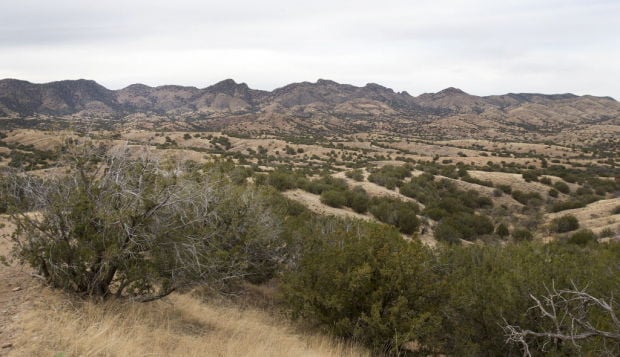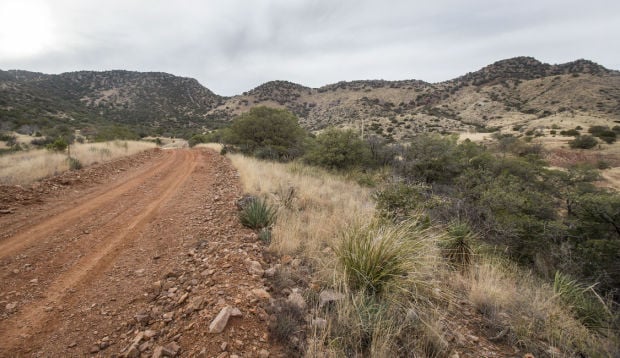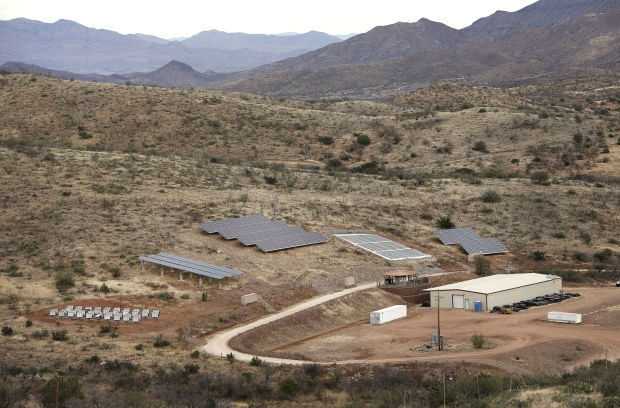On its face, the ascension of Donald Trump to the White House should be a boon for the long-delayed $1.5 billion Rosemont Mine, which would be this country’s third-largest copper mine.
But it’s not that simple, say three outside experts who have worked for federal environmental agencies under both major political parties. With a final federal decision on Rosemont approaching soon, a pro-business Trump administration would undoubtedly be more favorably inclined than some Obama administration officials have been. But that doesn’t make Rosemont a done deal, say the experts — two law professors and a top official for a nonprofit water group.
Hudbay Minerals Inc. of Toronto and its predecessor, Augusta Resource Corp. of Vancouver, British Columbia, have sought federal permits for the proposed mine in the Santa Rita Mountains since 2007. But their efforts have not yet produced all needed permits, due to opposition from environmentalists, Indian tribes and neighbors of the mine, and severe skepticism among some agency officials who have reviewed it. Disputes over endangered and threatened species, concerns about the mine potentially drying up neighboring wells and streams, and worries about air- and water-quality impacts have delayed decisions year after year.
Trump never publicly mentioned Rosemont in his campaign. But the Republican repeatedly promised to lighten the hand of what he called overburdensome environmental regulations on industry. He railed against the Obama administration’s Clean Power Plan aimed at reducing greenhouse gas emissions, promised to put the ailing coal mining industry back on its feet and vowed to overturn President Obama’s Waters of the United States rule that ensures federal protection of waterways.
However, the Rosemont outcome will depend not just on the party in power, the outside experts said. It will depend on whom Trump appoints to key posts and on how effectively those appointees can marshal legal arguments in favor of the mine if Obama officials kill it before Trump takes office on Jan. 20.
If the Trump administration wanted to overturn an unfavorable decision, it would have to reopen a very detailed record and develop additional facts or analysis, said Tracy Mehan, an assistant Environmental Protection Agency administrator under President George W. Bush and now head of government affairs for the nonprofit American Water Works Association.
Agreeing, University of Colorado law professor Mark Squillace noted that if the Army Corps of Engineers left behind a strong record backing denial, it would include “everything that suggested the agency thought approving the permit was a bad idea.”
“Elections do matter and reasonable people can disagree over an issue. But the outcome depends on how the record is developed. It comes down to whether a court determines if an agency decision passes the laugh test,” Mehan said.
Plus, there is Trump’s penchant for changing his views on issues.
“No one knows what Trump will do on anything. ... But the people he puts in charge of EPA, the Department of Interior, etc., will be able to do a lot to reverse Obama policies and exercise a different kind of discretion on regulatory decisions like Rosemont,” said Patrick Parenteau, a Vermont Law School professor. The key appointee will be the assistant secretary of the Army, who will oversee the Army Corps, said Parenteau.
While Parenteau is certain Trump will appoint lower-level officials more sympathetic to the mining industry than Obama did, “Who knows how high this project will get on the Trump administration hit list? It may not get there. If it was oil and gas, yeah, tar sands, yeah, but a copper mine by a foreign company? I don’t know.”
In fact, while Parenteau and Squillace agreed the odds in Rosemont’s favor are higher under Trump than if Democrat Hillary Clinton had won, Parenteau said they’re only slightly higher.
“I think Clinton is not an environmentalist. She would pick some environmental battles like climate change and would be more strong on those issues,” said Parenteau, who was an Environmental Protection Agency regional counsel under President Ronald Reagan and a special counsel on an endangered species issue under President George H.W. Bush.
“But when it gets down to trade-offs between economic development and impacts on wildlife and water quality, I don’t know you could immediately conclude that she was always going to come down on the side of the environment,” said Parenteau, who also was an attorney and executive in the 1970s and ’80s for the National Wildlife Federation and in spring 2014 gave the Tucson-based Center for Biological Diversity some legal advice on Rosemont.
“It’s always a function of time and what else is happening and where else would an administration have to spend its political capital on something,” he said.
Army Corps official
to visit mine site Tuesday
During Obama’s tenure, the Army Corps of Engineers’ Los Angeles District Office has been critical of the Rosemont Mine’s mitigation plans and last summer recommended denial. The Corps’ San Francisco-based Pacific Southwest Division now has to make a final decision.
The division’s new commander, Col. Pete Helmlinger, will visit the Rosemont site southeast of Tucson on Tuesday.
The office has no timetable for making a decision on the mine, said Corps spokeswoman Heather Babb, and it’s not publicly known if the agency will decide before Obama leaves office. The U.S. Forest Service, which has been much friendlier to the Rosemont proposal, is expected to decide after the Corps does. Then, the EPA has veto power over a Corps permit.
But if Helminlinger says no, Hudbay could appeal to higher-ranking agency officials, which would drag the issue into the new administration.
Advocates on both sides of the debate say they’re hopeful of winning now. Rick Grinnell, president of the Southern Arizona Business Coalition, said he thinks the Trump team will have a more realistic approach toward environmental issues. He hopes that attitude will extend to several other pending Arizona mines, including Arizona Mining Inc.’s proposed silver mine in the Patagonia Mountains and Curis Resources’ proposed underground copper mine near Florence.
“I think a lot of these issues hanging will be resolved much more efficiently,” he said.
Gayle Hartmann, president of the Rosemont opposition group Save the Scenic Santa Ritas, said she remains optimistic even under Trump.
“The various federal agencies have put together an excellent record that makes clear the devastating impacts of the mine. What the Trump administration tries to do down the line is unknown, but we expect the Corps will stand firm and that in reviewing the record the administrator will act in accord with the law,” Hartmann said.
Hudbay’s community relations manager for Rosemont, Jerry Bustamante, speaking at a local event in mid-November, said, “We have a very strong project with good science. We feel very strongly it can stand on its own, regardless of whatever political climate we’re in.”
Projects have been reversed before
There is a precedent for one administration quickly overturning another on a crucial but local environmental issue, in New Mexico.
In early 1980, President Jimmy Carter, a Democrat, canceled plans to build an underground geologic repository to dispose of medium-level radioactive wastes from defense plants in Carlsbad, New Mexico. Even though Congress appropriated $20 million for the project later that year, Carter refused to start construction on it.
A few days after Republican Ronald Reagan took over in January 1981, his administration approved construction of what became the Waste Isolation Pilot Plant, and drilling of the first underground shaft for the nuclear dump began six months later. The project was eventually finished and opened, although it’s now shut down due to a 2014 radioactive leak.
But today, if the Obama administration decides against the Rosemont Mine, with a new administration coming, “There are so many unknowables — who will be at EPA, who will run the water offices, who will be the (Army’s) assistant secretary for civil works. Personnel is policy,” Mehan said. “My guess is while the president-elect probably has some strong views on the Waters of the U.S. issue and the Clean Power Plan, when you get into this level of detail, and drill down to the operations of statutes and regulatory programs, it’s all to be determined.”
Low copper prices
may slow action
But the new administration may not push too hard now in any case because copper and other commodity prices are not high, said Squillace, a special assistant to the Interior Department solicitor under President Bill Clinton. Hudbay has said it won’t open any new mine until copper prices return to $3.50. They’re in the $2.60 range now, although the price in November had its biggest monthly increase in 10 years.
“Why not wait? If a company is not in position to open the mine due to market prices ... what’s all the fuss?” Squillace said.
But if the Corps does decide while Obama is president to approve the mine, it’s unlikely the EPA will intervene before Trump takes office, Squillace said.
“I would think that they don’t want to weigh in,” he said. “The way the government works, I’d be surprised if we get a decision before January 20.
“At the end of an administration, EPA’s got a million things they’re trying to get done,” he said.






